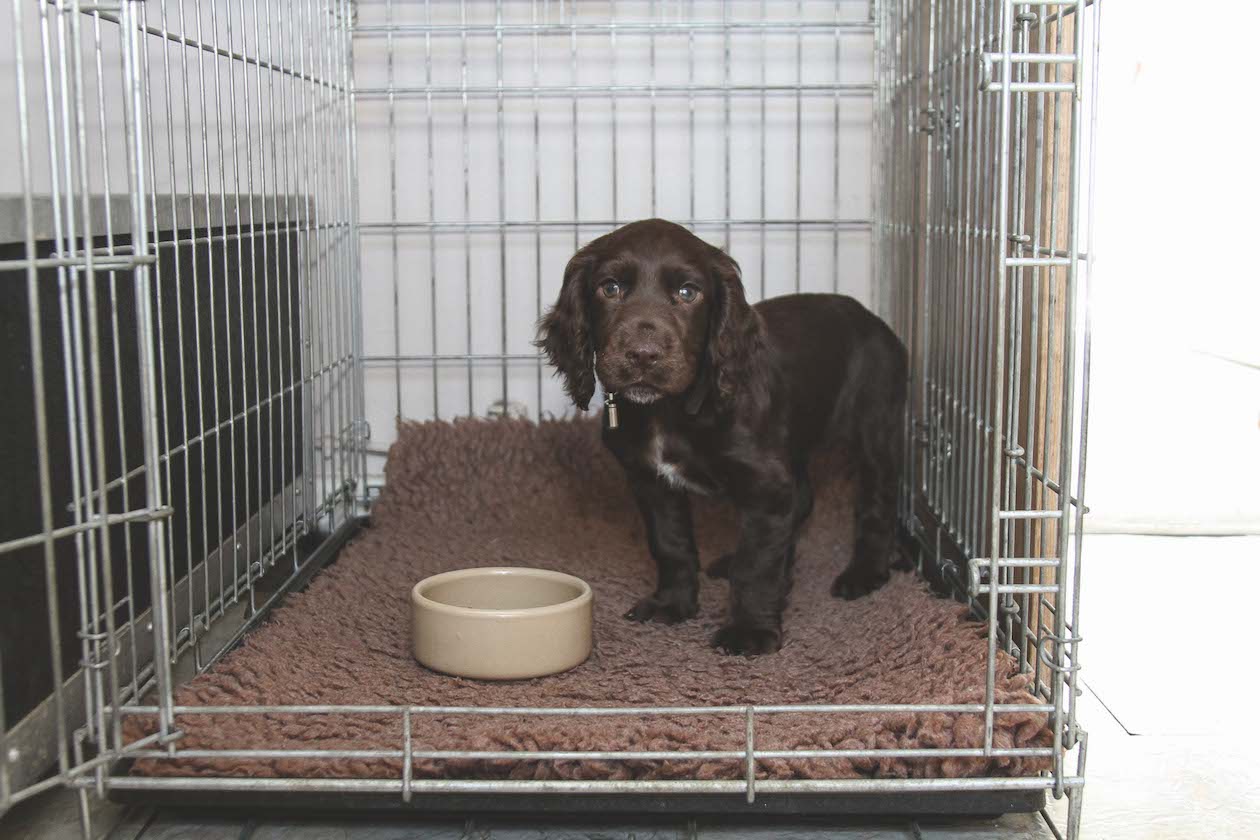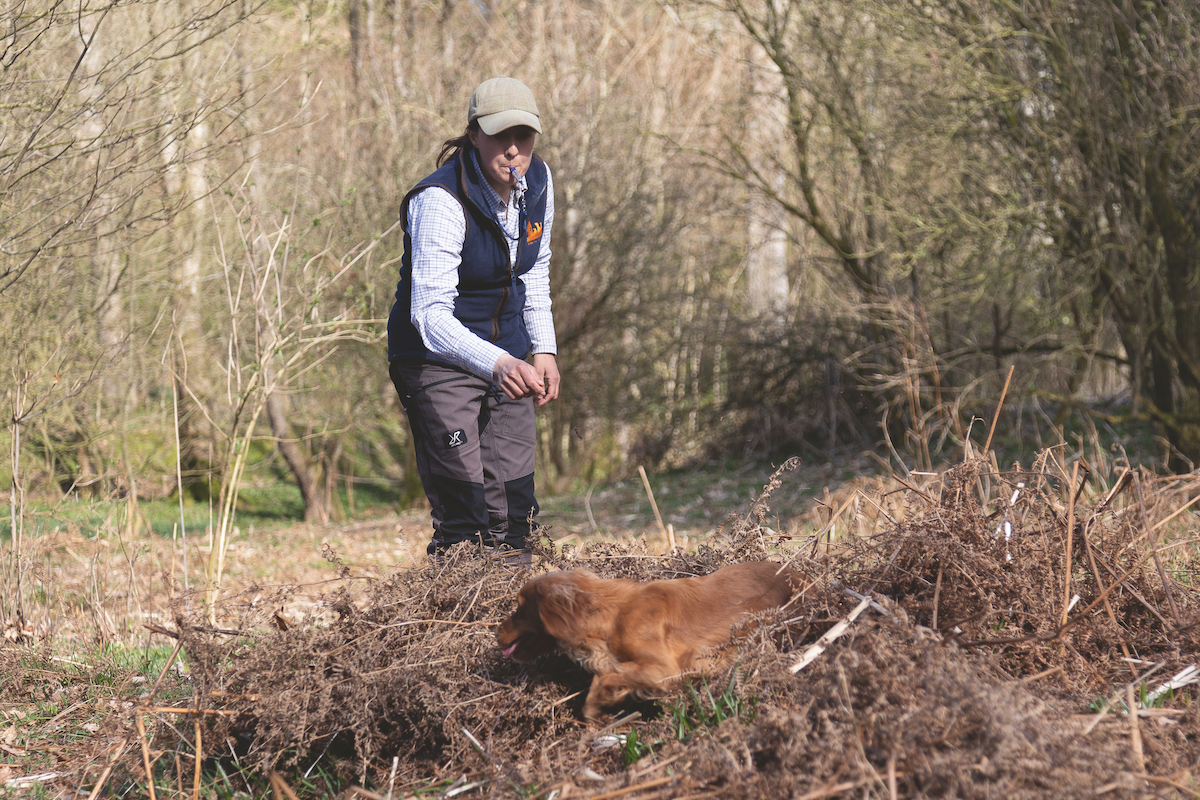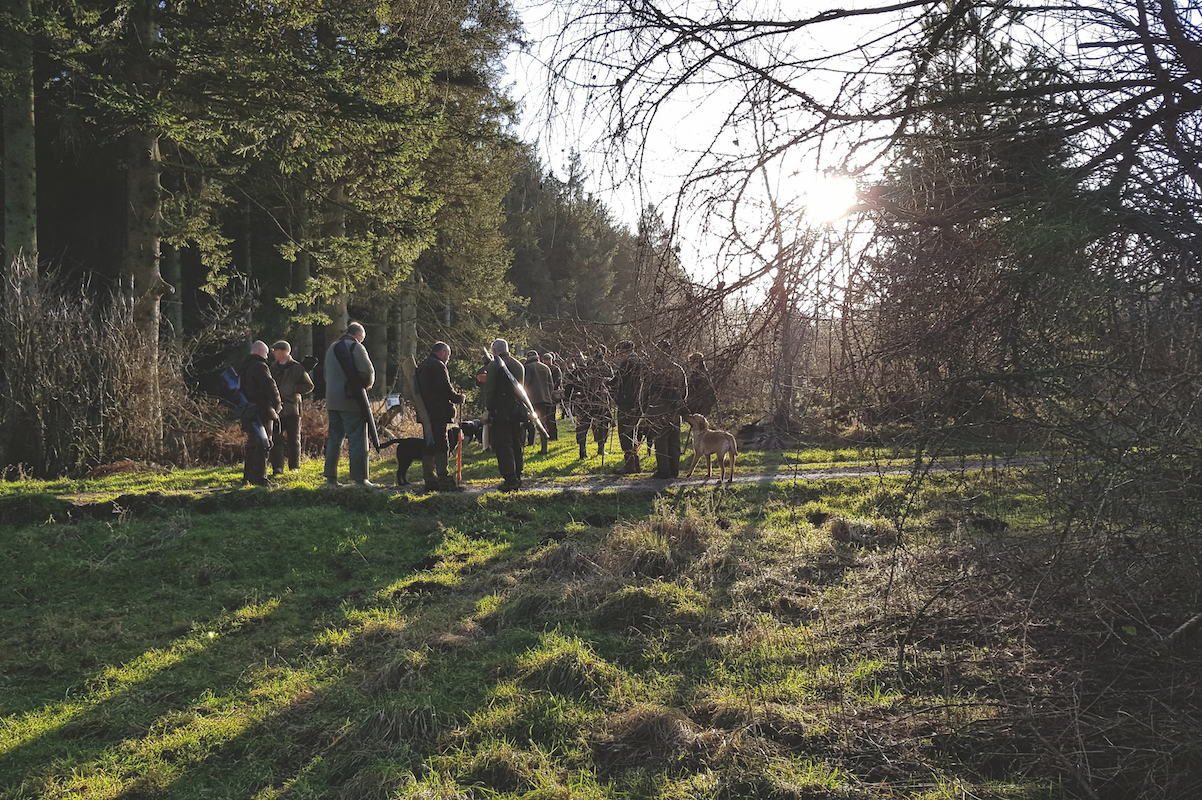Crate training a puppy – how to do it right
Crate training a puppy makes toilet training simpler and also gives the youngster a 'safe' space of their own

Q: We are due to get a new cocker pup and it will be living indoors. We have been advised that crate training a puppy is the right way to proceed. What do you think?
A: A crate is a good idea for any dog, but it should be introduced properly. I like to condition my young pups so that the crate is a nice, secure place for them. A good method is to feed the pup in the crate and to also have its bed in the crate; I use a bit of vet bed and they soon learn to take themselves off to the crate to sleep. (Read our guide to the best gundog beds here.)
Try to avoid using the crate as a punishment, although I will put the puppy away if they need some time out if they are getting overly boisterous. (Fran Ardley.)
More on crate training a puppy
Dogs find it uncomfortable and a little stressful to urinate or defecate where they sleep so by keeping a puppy in a crate when she is young, she is less likely to mess. She will still have limited control of her bodily functions, so by carrying her outside approximately every hour and rewarding her every time she goes to the loo in the desired area will work wonders. Using paper, puppy pads and so on only confuses the dog. One minute you are praising them for going to the loo inside and the next you tell them it is wrong.
Timing toilet trips
Don’t assume that the puppy will need to go to the loo in the night. While they do have tiny bladders and will probably have the odd accident, sensible timing of their feeds can help them in the early weeks of training. Ensure their last feed is early enough that they have time to defecate before bedtime. You could take them out at around 11pm and then let them out again about 6am. Don’t be tempted to have a 3am regular toilet break – you could be introducing it as a habit that will be hard to break.

A crate gives a puppy a safe place when you are not there, which is useful if there are other dogs in the house
Puppy crates are safe places

Crate training can also help control chewing
Crates also control chewing
The final reason for choosing to crate-train is the habit of chewing. Some dogs chew and some don’t. (More on avoiding chewing by dogs here.)
Ensure every puppy has plenty of mental stimulation and plenty of chew toys when left alone. All dogs grow out of chewing in their own time. A crate or kennel prevents any damage or dangerous situations for the puppy.








